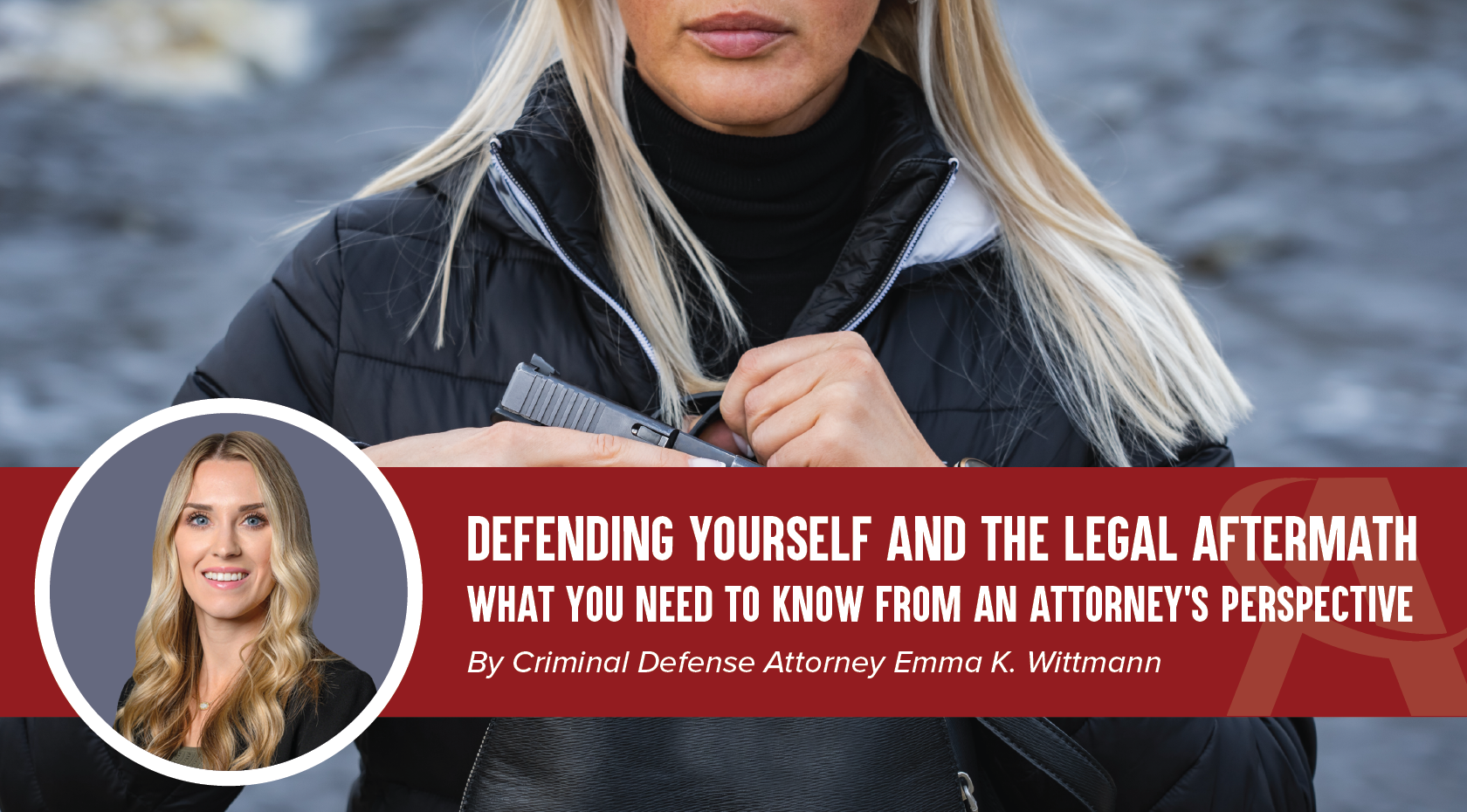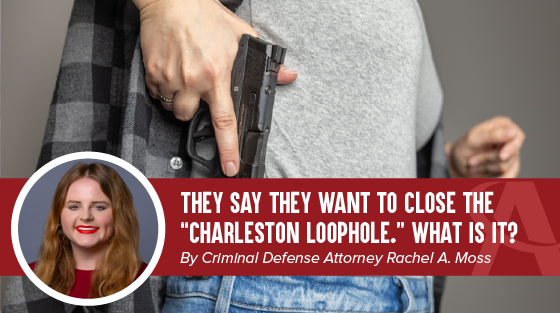Defending Yourself and the Legal Aftermath: What You Need to Know From an Attorney’s Perspective
By. Attorney Emma K. Wittmann
October 2, 2025

In today’s society, life can be unpredictable, and there may come a time when we need to protect ourselves. Every day, threats place individuals or their loved ones in danger. I want you to be as confident as possible to act in self-defense to protect yourself or your loved ones.
Not only should we be prepared in our training with our defense weapon of choice but also have knowledge of how to handle the legal aftermath. In this article, I break down the three most common questions regarding self-defense that I get asked as an attorney:
- When can I act in self-defense?
- What weapons can I use to defend myself?
- What will happen to me if I use self-defense?
I hope in answering each of these questions, you will gain a better understanding of the law and criminal process in case you ever find yourself in a self-defense incident.
When Can I Act in Self-Defense?
Self-defense is generally defined as a justified threatening or use of physical force against another when and to the extent a reasonable person would believe that physical force is immediately necessary to protect oneself against another’s use or attempted use of unlawful physical force. Self-defense is not justified in response to a verbal provocation alone or if you are the initial aggressor.
That’s a lot of legal jargon, so let’s break it down! You are justified in using self-defense when another person is:
- Threatening or using force against you;
- Your use of force is immediately necessary to protect yourself and stop the threat; and
- A reasonable person, not just you, would find the use of force is immediately necessary.
Keep in mind, that “immediate” means right in that moment. It does not apply to a future threat of harm. Additionally, when determining if someone acted reasonably, the circumstances are considered from the perspective of an objective, reasonable person in the same circumstances, not just your personal, subjective view.
What Weapons Can I Lawfully Use to Defend Myself?
There are a variety of weapons that can be used in self-defense. This could range from ordinary objects such as a coffee cup or fists to something more serious or lethal, such as pepper spray, a knife, or a firearm (these are just a few examples and not an exhaustive list).
Proportionality is key when analyzing a self-defense incident. This means your response to the threat needs to be proportional to the amount of force the aggressor is using against you. The use of force should be enough to stop the threat and nothing more. For example, if you are not facing a threat of serious physical injury or death, you should not use deadly physical force. Ordinary physical force may be more appropriate.
Some states require individuals to retreat if they can do so in complete safety before meeting the threat with force. Please make sure you are familiar with your state’s laws.
What Will the Aftermath Look Like if I Use Self-Defense?
Deciding to act in self-defense, especially if you are using a firearm, requires serious consideration because of the potentially life-threatening nature and legal repercussions.
Following a self-defense incident, the police will likely conduct an investigation. You may be arrested and charged with a serious felony. Keep in mind that self-defense is just that: a defense to a crime. Officers may be able to discern that your use of force was a clear act of self-defense and use their discretion in deciding not to move forward with an arrest. However, more often than not, officers will make an arrest and the prosecutor’s office will review the case and bring formal charges.
There are so many benefits to having an attorney’s phone number saved on your phone in case you need to seek advice immediately following a self-defense incident. Your attorney can guide you through the stressful aftermath in real time. Your attorney can advise you on how to keep yourself safe when police arrive. Your attorney will likely not want you to make any statements to the officer, and they can speak to the officer on your behalf. This is because any statements you make, or any details that you leave out during your statement, can be used against you and could cause more harm than good in a criminal case.
If you are arrested, you will go through the process of being booked into jail. Then, you will have an Initial Appearance in front of a judge who will inform you of the charges against you and determine if you will be eligible for release and what your release conditions will be. If you have an attorney, they will be able to argue for your release. Depending on the situation, you could be facing charges of aggravated assault or homicide.
The criminal process can be stressful, confusing, and overwhelming. Felony cases can take months if not years to reach a conclusion. Knowing what to expect from the justice system and having an attorney to guide, advise, and defend you will help to alleviate some of this inevitable stress, and potentially keep the case from getting charged, or charged with less serious offenses.
Equipping Yourself For Self-Defense and Legal Preparedness
While I hope none of our Attorneys On Retainer members (“AOR”) or prospective AOR members finds themselves in a situation where they need to act in self-defense, my goal is to better equip you with knowledge on best practices for self-defense and how to handle the legal aftermath. Just like training with your firearm or tool of choice is important for perfecting your skills, equipping yourself with knowledge of the law and criminal process is equally as valuable.
If you are interested in learning more about our firm, Attorneys For Freedom, and our national self-defense program, Attorneys On Retainer, which allows you to have access to your attorneys 24/7/365, I will include the link to our website below. Stay safe out there.
Until next time, Emma Wittmann. Esq.




